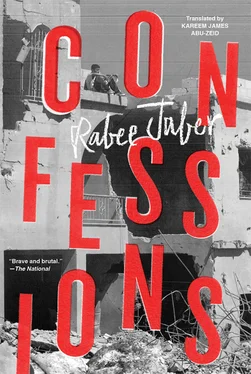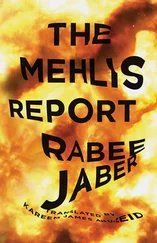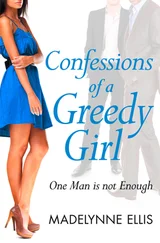“Are you tired?” I asked her.
“I’m going to die now.”
I remember the noise from the radio, I remember the din of my sisters outside. I remember the door slamming and someone talking loudly. Then the radio grew softer, and the voices died down. My father came into the room.
I still don’t understand how he knew she was asking for him — he’d been at his office at the port.
I think a lot about the strange things that happen. While I was studying at Sacred Hearts, I heard a story that resembled my own, though I didn’t know it at the time. There was a line of stores across from the gate of the school. One store sold Sahba toys and candy and jam (and for a while the owner put in a falafel fryer and started selling us sandwiches as well). And there was a store beside it, I can’t remember what all they sold there, but it was the only place in that area where we could find “Lion” chocolate bars. The owner was a blind man who we’d often see playing the oud, and we sometimes tried to cheat him (by giving him a piece of paper instead of a banknote, or by giving him a one-lira note and telling him it was a fiver), but he’d just laugh and hit us playfully without getting upset. Past those two stores, there was a shop that sold both fish and flowers. We’d head over there, not for the flowers and the fish, but rather to look at the owner’s daughters. The owner was originally from Tripoli, from the Khodr family — I think he was a relative of Bishop George Khodr. Each of his daughters was more beautiful than the last, and they all resembled one another, even the youngest one, who wasn’t actually their sister. The owner’s name was Nadeem Khodr, and when he found the young girl he put an ad in the papers with his phone number on it, asking “anyone who knows anything about her” to contact him. Have you heard how he found her? During the Two-Year War, he was living in the town of Dbayeh, and was on his way back home to his wife and daughters when the refugee camp started burning. Gunfire sparked against the walls and sprayed the sidewalk as he struggled to cut through the smoke. He finally reached the building where he lived. As he went through the dark entryway, escaping the stray bullets and mortar shells and exploding glass, he stumbled on a basket. It was just like the basket we use for fruits and vegetables: the baby had been wrapped up and left in it. The man took her in and raised her as his own. We used to see her sitting in the store with her mother, in the middle of the tanks full of colorful fish, and we couldn’t believe it: she looked like a younger version of her mother. She looked just like her sisters, as if she were one of them. I don’t know if she knew or not. Did she know her family wasn’t her own?
Years later, that story from my childhood came back to me, and I tried to remember what I thought — and what I felt — when I’d first heard it. I couldn’t remember. All I could remember were the girls’ beautiful faces and the brightly colored fish, the aquariums and the bouquets. Is her story like my own? The smallest of details is enough for the two to be completely different. Here, where I’m putting my finger — this is where the bullet entered. If it had been an inch lower, it would have pierced my heart. (I know a man who now lives in a village about twenty kilometers outside of Melbourne. His name’s not important. He was Ilya’s friend, but he left Lebanon
in ’87, and he’s been in Australia ever since. He’s married to an Australian woman and has kids, and he carves wooden masks in the simple style of the Aboriginals. He has exhibits of his work and people buy his carvings, and that’s enough for him to live on. His wife used to punch train tickets, but now she’s left her job and stays on the farm with him and raises the kids. They have some cattle, and also some fowl. When Ilya traveled to Australia a few years ago, he went and visited him on that farm in the country. I remember that man sitting on the roof of our house, after the Mountain War but before my mother died. I can’t remember when exactly, but sometime between ’83 and ’85. I remember him taking a small cloth bag that looked like a glasses case out of the pocket of his military jacket. The bag had a leather cord. I remember him untying the cord while turning the bag over in his hands, as if there were something alive inside the bag: butterflies, for example, or bees, or cicadas, I don’t know. That’s how he was moving, that’s how his fingers were moving. I remember the boy I used to be — how old was I? twelve? thirteen? — and I remember that boy turning around and looking at his big brother’s friends, who had all fallen silent. He was opening the bag, and everyone’s eyes were glued to it. He opened it and turned it over into his outstretched palm: I saw marbles, or what I thought were marbles. They looked like small strangely colored glass globes, and I couldn’t figure out why a fighter would collect them. When one of them said they were all from Shatila, I didn’t understand what he meant.)
Why am I telling you this story? The bag was full of human eyes. Why am I telling you about this? Because it’s a part of me. When I studied Heraclitus in college, I was struck by this sentence: “A man’s character is his fate.” What did he mean? Isn’t the opposite true as well? Doesn’t fate make a man’s character? All these coincidences that happen in the course of a life — don’t they form who we are? But he meant something else. I think about these things, and as I think about them solace comes.
We went back to the house after the funeral. Clumps of dirt appeared on the stairs as we climbed up them: mud from the grave. My memory of the funeral is nothing but darkness. I was there, but I can’t remember a single thing. All I remember is a hand pointing at a tall building in the distance: the family graveyard is near the demarcation line, and it isn’t safe there when the snipers on the eastern and western sides of the city are exchanging fire. A lot of families stopped burying their dead there. They switched to Mar Mitr, even though that cemetery never used to have people from our denomination.
We buried my mother next to my little brother and went home. My sister Mary made a beeline for the kitchen and started heating up the food. She took a pot out of the fridge and put it on the flame. Then she filled a bucket with water from the faucet and put some cleaner in it (a white powder with red beads). She got out the mop and the broom and went out to the stairwell. I looked at her, and at the face of someone else standing by the stairs who was also looking at her. That’s when I noticed there was no one in the house. Where had they disappeared to? They were all here a moment ago. My mother had died and the family had vanished.
I stood at the door to the house and watched Mary splatter soapy water (was that soapy water?) onto the stairs. The sound of water on the tiles. Mary was taking off her slippers (were those slippers?) and a thick foam flowed out in front of the broom. I looked over at the stairs that led to the roof and saw some muddy footprints. Who’d gone up there? My father? One of my sisters? I heard a voice behind me, in one of the rooms. Who’d closed the door to that room? Why was it closed? My mother had died and the family had vanished. I went down the stairs. “Be careful,” Mary said. Was she afraid I’d slip on the soap? Or was she afraid I’d get the stairs dirty again? I stuck to the wall, going down two steps at a time, and didn’t slip on the soap. I went out into the cold. I remember the stinging air, the clear blue sky, and the northerly wind blowing…. At the end of the street, near the old eucalyptus tree, I saw two kids playing catch with a ball. I stood and stared at them. I stared at the ball coming and going, coming and going, and felt an inhuman hand plunge down my throat, pass through my chest, grab hold of my guts, and pull them up between my teeth like a bag of yogurt. But that wasn’t the worst moment. At night I lay stretched out on my back with my eyes open. I was covered in a wool blanket, and there was a quilt on top of the blanket, but my teeth still chattered. A horrific chill had taken hold of me. Now when I remember the first night after my mother died, I remember how cold I was. Even though — and this seems strange to me — the cold never bothered me back in those days.
Читать дальше












